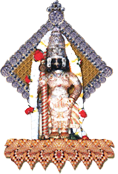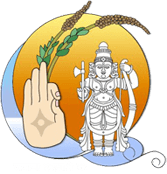अकीर्तिं च अपि भूतानि कथयिष्यन्ति तॆ अव्ययाम्
सम्भावितस्य च अकीर्तिः मरणात् अतिरिच्यते ॥ २.३४ ॥
ಅಕೀರ್ತಿಂ ಚ ಅಪಿ ಭೂತಾನಿ ಕಥಯಿಷ್ಯಂತಿ ತೇ ಅವ್ಯಯಾಮ್
ಸಂಭಾವಿತಸ್ಯ ಚ ಅಕೀರ್ತಿಃ ಮರಣಾತ್ ಅತಿರಿಚ್ಯತೆ || ೨.೩೪ ||
akeertiM cha api bhUtAni kathayiShyaMti tE avyayAm
saMbhAvitasya cha akeertiH maraNAt atirichyate || 2.34 ||
Also, all people will speak of your infamy (disgrace) for all the time; and for respected persons infamy is worse than death
api cha bhUtAni tE avyayAm akeertiM kathayiShyaMti
Further general public will criticize your eternal disrespectful activities (You may think, let them criticize, what is it to me)
To this Shri Krishna states
akeertiM cha saMbhAvitasya maraNAt atirichyate
Disrespect andinfamy are equal to death for those who have been well respected and honored in the society.
Points:
1. akeerti = disrespect
This word does not merely mean absence f fame, but positive dishonor.
2. saMbhAvitasya = well placed and well respected. Some of the reasons that this word is applicable to Arjuna is as follows.
a. Pandu Putra = Son of Pandu.
b. Subadhra Pati = Husband of Subadhra, ister of Lord Krishna.
c. Avatara of Indra
d. Kunti putra
e. gAndivadhanudhari = Possessor of gandiva.
f. savyasAchin = Can ht targets even with left hand.
g. Bhimasenasya Sahodara = Brother of Bhima.
h. Shri Krishnasya prasaAda yogya = Qualified for Shri hari’s blessings.
i. Sacipati = Husband of Saci Devi.
j. UthhamAdhikari = Specially ordained great person.
k. Kurunandana, MahAbAhu Arjuna = Doing always proper deeds.
3. saMbhAvitasya: By this word, Shri krishna reminds Arjuna what happened to his Guru (Sati Devi, wife of Mahadeva) earlier.
yadi vrajiṣyasyatihāya mad-vaco bhadraḿ bhavatyā na tato bhaviṣyati
sambhāvitasya sva-janāpavādaH sadā sa sadyo maraṇāya kalpate (Bhagavatam 4:3:25)
Mahadeva advised ‘Satidevi’ at the time of Yajna by Daksha, not to go there and she wil not be cared for by anyone. Further Rudra Deva will be insulted and as a dutiful wife, she will be very much upset. ‘Death is preferable to dishonor’ will happen [sambhāvitasya].
Death will bring temporary loss, but dishnor or disrespect will bring permanent loss.


